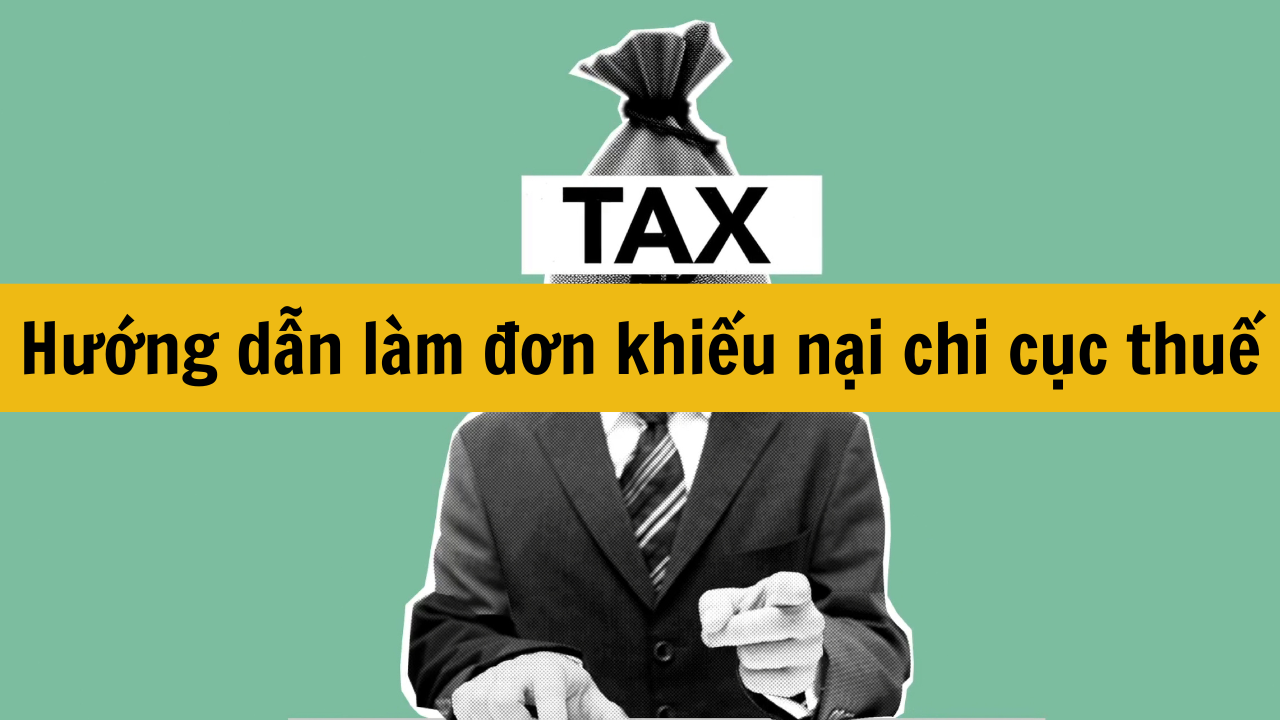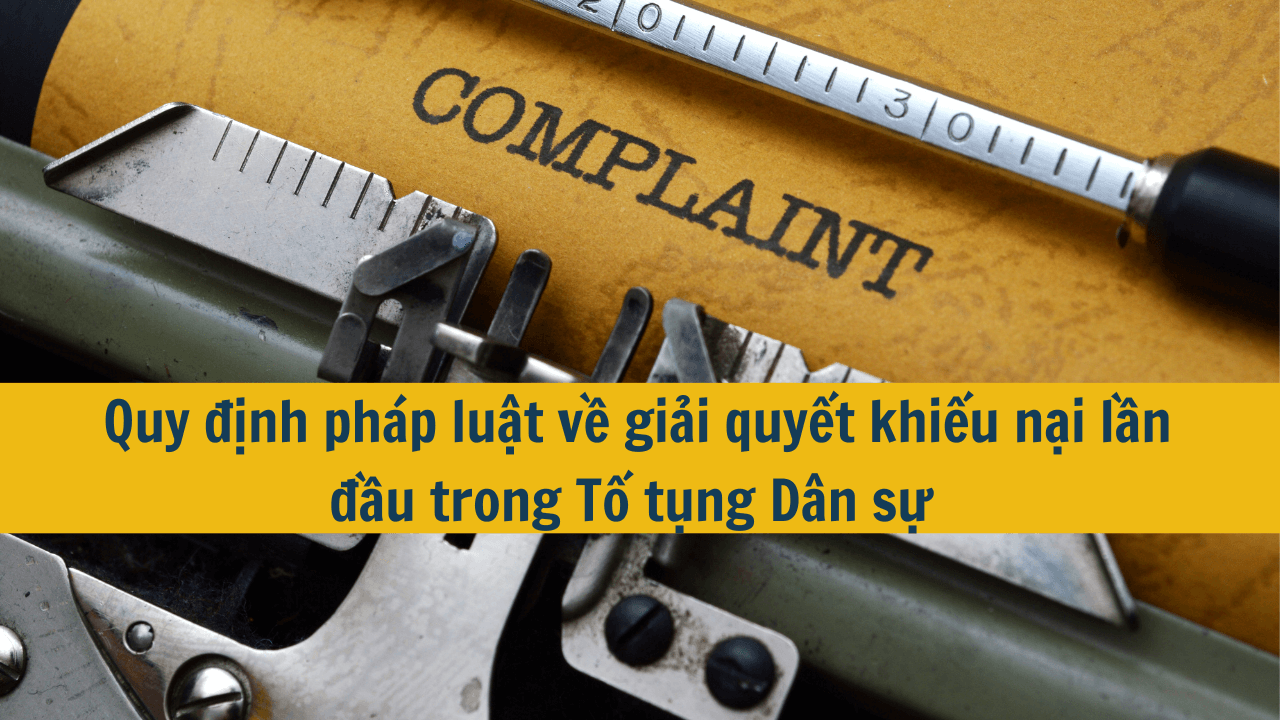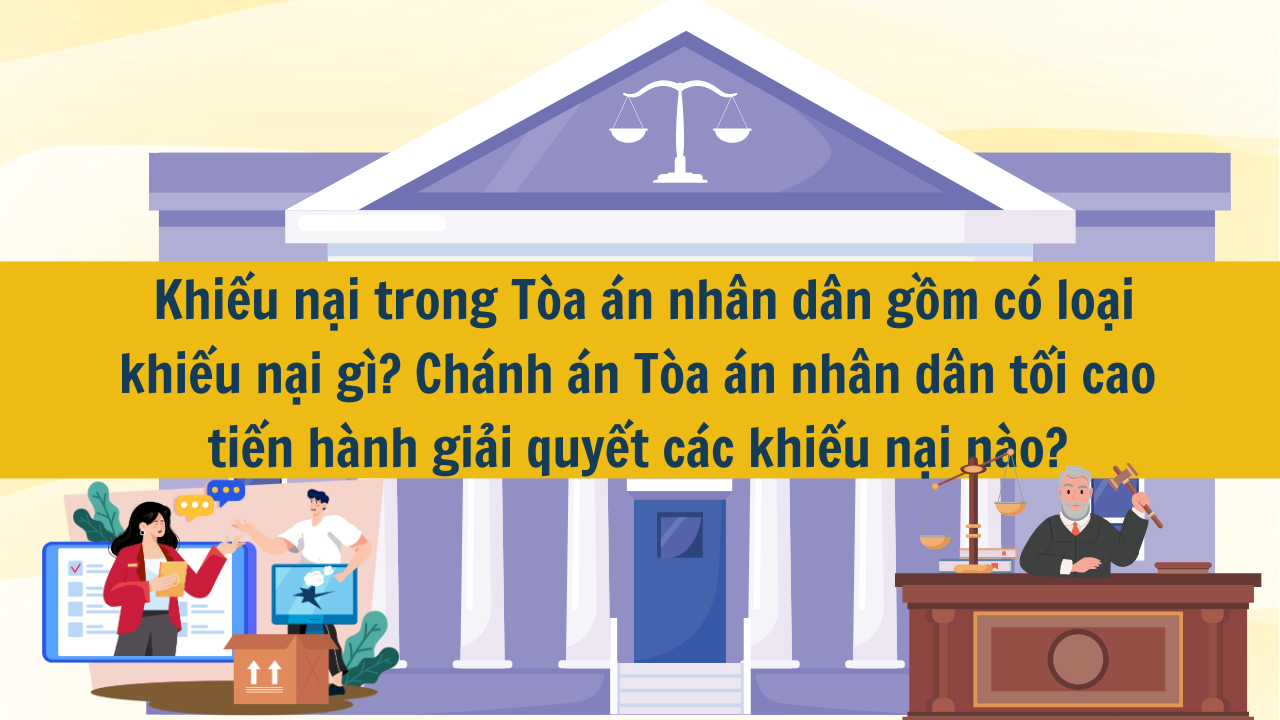 Tìm kiếm
Tìm kiếm
Chương 2 Luật khiếu nại 2011: Khiếu nại quyết định hành chính, hành vi hành chính
| Số hiệu: | 02/2011/QH13 | Loại văn bản: | Luật |
| Nơi ban hành: | Quốc hội | Người ký: | Nguyễn Sinh Hùng |
| Ngày ban hành: | 11/11/2011 | Ngày hiệu lực: | 01/07/2012 |
| Ngày công báo: | 19/02/2012 | Số công báo: | Từ số 163 đến số 164 |
| Lĩnh vực: | Thủ tục Tố tụng | Tình trạng: | Còn hiệu lực |
TÓM TẮT VĂN BẢN
Văn bản tiếng việt
Văn bản tiếng anh
1. Khi có căn cứ cho rằng quyết định hành chính, hành vi hành chính là trái pháp luật, xâm phạm trực tiếp đến quyền, lợi ích hợp pháp của mình thì người khiếu nại khiếu nại lần đầu đến người đã ra quyết định hành chính hoặc cơ quan có người có hành vi hành chính hoặc khởi kiện vụ án hành chính tại Tòa án theo quy định của Luật tố tụng hành chính.
Trường hợp người khiếu nại không đồng ý với quyết định giải quyết lần đầu hoặc quá thời hạn quy định mà khiếu nại không được giải quyết thì có quyền khiếu nại lần hai đến Thủ trưởng cấp trên trực tiếp của người có thẩm quyền giải quyết khiếu nại lần đầu hoặc khởi kiện vụ án hành chính tại Tòa án theo quy định của Luật tố tụng hành chính.
Trường hợp người khiếu nại không đồng ý với quyết định giải quyết khiếu nại lần hai hoặc hết thời hạn quy định mà khiếu nại không được giải quyết thì có quyền khởi kiện vụ án hành chính tại Tòa án theo quy định của Luật tố tụng hành chính.
2. Đối với quyết định hành chính, hành vi hành chính của Bộ trưởng, Thủ trưởng cơ quan ngang Bộ, Thủ trưởng cơ quan thuộc Chính phủ (sau đây gọi chung là Bộ trưởng) thì người khiếu nại khiếu nại đến Bộ trưởng hoặc khởi kiện vụ án hành chính tại Tòa án theo quy định của Luật tố tụng hành chính.
Trường hợp người khiếu nại không đồng ý với quyết định giải quyết khiếu nại của Bộ trưởng hoặc quá thời hạn quy định mà khiếu nại không được giải quyết thì có quyền khởi kiện vụ án hành chính tại Toà án theo quy định của Luật tố tụng hành chính.
3. Đối với quyết định hành chính, hành vi hành chính của Chủ tịch Ủy ban nhân dân tỉnh, thành phố trực thuộc Trung ương (sau đây gọi chung là cấp tỉnh) thì người khiếu nại khiếu nại lần đầu đến Chủ tịch Ủy ban nhân dân cấp tỉnh hoặc khởi kiện vụ án hành chính tại Tòa án theo quy định của Luật tố tụng hành chính.
Trường hợp người khiếu nại không đồng ý với quyết định giải quyết khiếu nại lần đầu của Chủ tịch Ủy ban nhân dân cấp tỉnh hoặc hết thời hạn quy định mà khiếu nại không được giải quyết thì có quyền khiếu nại lần hai đến Bộ trưởng quản lý ngành, lĩnh vực hoặc khởi kiện vụ án hành chính tại Tòa án theo quy định của Luật tố tụng hành chính.
Trường hợp người khiếu nại không đồng ý với quyết định giải quyết lần hai của Bộ trưởng hoặc hết thời hạn quy định mà khiếu nại không được giải quyết thì có quyền khởi kiện vụ án hành chính tại Tòa án theo quy định của Luật tố tụng hành chính.
1. Việc khiếu nại được thực hiện bằng đơn khiếu nại hoặc khiếu nại trực tiếp.
2. Trường hợp khiếu nại được thực hiện bằng đơn thì trong đơn khiếu nại phải ghi rõ ngày, tháng, năm khiếu nại; tên, địa chỉ của người khiếu nại; tên, địa chỉ của cơ quan, tổ chức, cá nhân bị khiếu nại; nội dung, lý do khiếu nại, tài liệu liên quan đến nội dung khiếu nại và yêu cầu giải quyết của người khiếu nại. Đơn khiếu nại phải do người khiếu nại ký tên hoặc điểm chỉ.
3. Trường hợp người khiếu nại đến khiếu nại trực tiếp thì người tiếp nhận khiếu nại hướng dẫn người khiếu nại viết đơn khiếu nại hoặc người tiếp nhận ghi lại việc khiếu nại bằng văn bản và yêu cầu người khiếu nại ký hoặc điểm chỉ xác nhận vào văn bản, trong đó ghi rõ nội dung theo quy định tại khoản 2 Điều này.
4. Trường hợp nhiều người cùng khiếu nại về một nội dung thì thực hiện như sau:
a) Trường hợp nhiều người đến khiếu nại trực tiếp thì cơ quan có thẩm quyền tổ chức tiếp và hướng dẫn người khiếu nại cử đại diện để trình bày nội dung khiếu nại; người tiếp nhận khiếu nại ghi lại việc khiếu nại bằng văn bản, trong đó ghi rõ nội dung theo quy định tại khoản 2 Điều này. Việc tiếp nhiều người cùng khiếu nại thực hiện theo quy định tại Chương V của Luật này;
b) Trường hợp nhiều người khiếu nại bằng đơn thì trong đơn phải ghi rõ nội dung quy định tại khoản 2 Điều này, có chữ ký của những người khiếu nại và phải cử người đại diện để trình bày khi có yêu cầu của người giải quyết khiếu nại;
c) Chính phủ quy định chi tiết khoản này.
5. Trường hợp khiếu nại được thực hiện thông qua người đại diện thì người đại diện phải là một trong những người khiếu nại, có giấy tờ chứng minh tính hợp pháp của việc đại diện và thực hiện khiếu nại theo quy định của Luật này.
Thời hiệu khiếu nại là 90 ngày, kể từ ngày nhận được quyết định hành chính hoặc biết được quyết định hành chính, hành vi hành chính.
Trường hợp người khiếu nại không thực hiện được quyền khiếu nại theo đúng thời hiệu vì ốm đau, thiên tai, địch họa, đi công tác, học tập ở nơi xa hoặc vì những trở ngại khách quan khác thì thời gian có trở ngại đó không tính vào thời hiệu khiếu nại.
Người khiếu nại có thể rút khiếu nại tại bất cứ thời điểm nào trong quá trình khiếu nại và giải quyết khiếu nại; việc rút khiếu nại phải được thực hiện bằng đơn có chữ ký hoặc điểm chỉ của người khiếu nại; đơn xin rút khiếu nại phải gửi đến người có thẩm quyền giải quyết khiếu nại.
Người có thẩm quyền giải quyết khiếu nại khi nhận được đơn xin rút khiếu nại thì đình chỉ việc giải quyết và thông báo bằng văn bản cho người khiếu nại về việc đình chỉ giải quyết khiếu nại.
Khiếu nại thuộc một trong các trường hợp sau đây không được thụ lý giải quyết:
1. Quyết định hành chính, hành vi hành chính trong nội bộ cơ quan nhà nước để chỉ đạo, tổ chức thực hiện nhiệm vụ, công vụ; quyết định hành chính, hành vi hành chính trong chỉ đạo điều hành của cơ quan hành chính cấp trên với cơ quan hành chính cấp dưới; quyết định hành chính có chứa đựng các quy phạm pháp luật do cơ quan, tổ chức, cá nhân có thẩm quyền ban hành theo trình tự, thủ tục của pháp luật về ban hành văn bản quy phạm pháp luật; quyết định hành chính, hành vi hành chính thuộc phạm vi bí mật nhà nước trong các lĩnh vực quốc phòng, an ninh, ngoại giao theo danh mục do Chính phủ quy định;
2. Quyết định hành chính, hành vi hành chính bị khiếu nại không liên quan trực tiếp đến quyền, lợi ích hợp pháp của người khiếu nại;
3. Người khiếu nại không có năng lực hành vi dân sự đầy đủ mà không có người đại diện hợp pháp;
4. Người đại diện không hợp pháp thực hiện khiếu nại;
5. Đơn khiếu nại không có chữ ký hoặc điểm chỉ của người khiếu nại;
6. Thời hiệu, thời hạn khiếu nại đã hết mà không có lý do chính đáng;
7. Khiếu nại đã có quyết định giải quyết khiếu nại lần hai;
8. Có văn bản thông báo đình chỉ việc giải quyết khiếu nại mà sau 30 ngày người khiếu nại không tiếp tục khiếu nại;
9. Việc khiếu nại đã được Tòa án thụ lý hoặc đã được giải quyết bằng bản án, quyết định của Toà án, trừ quyết định đình chỉ giải quyết vụ án hành chính của Tòa án.
1. Người khiếu nại có các quyền sau đây:
a) Tự mình khiếu nại.
Trường hợp người khiếu nại là người chưa thành niên, người mất năng lực hành vi dân sự thì người đại diện theo pháp luật của họ thực hiện việc khiếu nại;
Trường hợp người khiếu nại ốm đau, già yếu, có nhược điểm về thể chất hoặc vì lý do khách quan khác mà không thể tự mình khiếu nại thì được ủy quyền cho cha, mẹ, vợ, chồng, anh, chị, em ruột, con đã thành niên hoặc người khác có năng lực hành vi dân sự đầy đủ để thực hiện việc khiếu nại;
b) Nhờ luật sư tư vấn về pháp luật hoặc ủy quyền cho luật sư khiếu nại để bảo vệ quyền, lợi ích hợp pháp của mình.
Trường hợp người khiếu nại là người được trợ giúp pháp lý theo quy định của pháp luật thì được nhờ trợ giúp viên pháp lý tư vấn về pháp luật hoặc ủy quyền cho trợ giúp viên pháp lý khiếu nại để bảo vệ quyền, lợi ích hợp pháp của mình;
c) Tham gia đối thoại hoặc ủy quyền cho người đại diện hợp pháp tham gia đối thoại;
d) Được biết, đọc, sao chụp, sao chép, tài liệu, chứng cứ do người giải quyết khiếu nại thu thập để giải quyết khiếu nại, trừ thông tin, tài liệu thuộc bí mật nhà nước;
đ) Yêu cầu cá nhân, cơ quan, tổ chức có liên quan đang lưu giữ, quản lý thông tin, tài liệu liên quan tới nội dung khiếu nại cung cấp thông tin, tài liệu đó cho mình trong thời hạn 07 ngày, kể từ ngày có yêu cầu để giao nộp cho người giải quyết khiếu nại, trừ thông tin, tài liệu thuộc bí mật nhà nước;
e) Được yêu cầu người giải quyết khiếu nại áp dụng các biện pháp khẩn cấp để ngăn chặn hậu quả có thể xảy ra do việc thi hành quyết định hành chính bị khiếu nại;
g) Đưa ra chứng cứ về việc khiếu nại và giải trình ý kiến của mình về chứng cứ đó;
h) Nhận văn bản trả lời về việc thụ lý giải quyết khiếu nại, nhận quyết định giải quyết khiếu nại;
i) Được khôi phục quyền, lợi ích hợp pháp đã bị xâm phạm; được bồi thường thiệt hại theo quy định của pháp luật;
k) Khiếu nại lần hai hoặc khởi kiện vụ án hành chính tại Toà án theo quy định của Luật tố tụng hành chính;
l) Rút khiếu nại.
2. Người khiếu nại có các nghĩa vụ sau đây:
a) Khiếu nại đến đúng người có thẩm quyền giải quyết;
b) Trình bày trung thực sự việc, đưa ra chứng cứ về tính đúng đắn, hợp lý của việc khiếu nại; cung cấp thông tin, tài liệu liên quan cho người giải quyết khiếu nại; chịu trách nhiệm trước pháp luật về nội dung trình bày và việc cung cấp thông tin, tài liệu đó;
c) Chấp hành quyết định hành chính, hành vi hành chính mà mình khiếu nại trong thời gian khiếu nại, trừ trường hợp quyết định, hành vi đó bị tạm đình chỉ thi hành theo quy định tại Điều 35 của Luật này;
d) Chấp hành nghiêm chỉnh quyết định giải quyết khiếu nại đã có hiệu lực pháp luật.
3. Người khiếu nại thực hiện các quyền và nghĩa vụ khác theo quy định của pháp luật.
1. Người bị khiếu nại có các quyền sau đây:
a) Đưa ra chứng cứ về tính hợp pháp của quyết định hành chính, hành vi hành chính bị khiếu nại;
b) Được biết, đọc, sao chụp, sao chép các tài liệu, chứng cứ do người giải quyết khiếu nại thu thập để giải quyết khiếu nại, trừ thông tin, tài liệu thuộc bí mật nhà nước;
c) Yêu cầu cá nhân, cơ quan, tổ chức có liên quan đang lưu giữ, quản lý thông tin, tài liệu liên quan tới nội dung khiếu nại cung cấp thông tin, tài liệu đó cho mình trong thời hạn 07 ngày, kể từ ngày có yêu cầu để giao cho người giải quyết khiếu nại, trừ thông tin, tài liệu thuộc bí mật nhà nước;
d) Nhận quyết định giải quyết khiếu nại lần hai.
2. Người bị khiếu nại có các nghĩa vụ sau đây:
a) Tham gia đối thoại hoặc ủy quyền cho người đại diện hợp pháp tham gia đối thoại;
b) Chấp hành quyết định xác minh nội dung khiếu nại của cơ quan, đơn vị có thẩm quyền giải quyết khiếu nại;
c) Cung cấp thông tin, tài liệu liên quan đến nội dung khiếu nại, giải trình về tính hợp pháp, đúng đắn của quyết định hành chính, hành vi hành chính bị khiếu nại khi người giải quyết khiếu nại hoặc cơ quan, đơn vị kiểm tra, xác minh yêu cầu trong thời hạn 7 ngày, kể từ ngày có yêu cầu;
d) Chấp hành nghiêm chỉnh quyết định giải quyết khiếu nại đã có hiệu lực pháp luật;
đ) Sửa đổi hoặc hủy bỏ quyết định hành chính, chấm dứt hành vi hành chính bị khiếu nại;
e) Bồi thường, bồi hoàn thiệt hại do quyết định hành chính, hành vi hành chính trái pháp luật của mình gây ra theo quy định của pháp luật về trách nhiệm bồi thường của Nhà nước.
3. Người bị khiếu nại thực hiện các quyền và nghĩa vụ khác theo quy định của pháp luật.
1. Người giải quyết khiếu nại lần đầu có các quyền sau đây:
a) Yêu cầu người khiếu nại, cơ quan, tổ chức, cá nhân có liên quan cung cấp thông tin, tài liệu, chứng cứ trong thời hạn 07 ngày, kể từ ngày có yêu cầu để làm cơ sở giải quyết khiếu nại;
b) Quyết định áp dụng, hủy bỏ biện pháp khẩn cấp theo quy định tại Điều 35 của Luật này;
2. Người giải quyết khiếu nại lần đầu có các nghĩa vụ sau đây:
a) Tiếp nhận khiếu nại và thông báo bằng văn bản cho người khiếu nại, cơ quan, tổ chức, cá nhân có thẩm quyền chuyển khiếu nại đến và cơ quan thanh tra nhà nước cùng cấp về việc thụ lý giải quyết khiếu nại đối với quyết định hành chính, hành vi hành chính bị khiếu nại;
b) Giải quyết khiếu nại đối với quyết định hành chính, hành vi hành chính khi người khiếu nại yêu cầu;
c) Tổ chức đối thoại với người khiếu nại, người bị khiếu nại và cơ quan, tổ chức, cá nhân có liên quan;
d) Gửi quyết định giải quyết khiếu nại cho người khiếu nại và chịu trách nhiệm trước pháp luật về việc giải quyết khiếu nại của mình; trường hợp khiếu nại do cơ quan, tổ chức, cá nhân có thẩm quyền chuyển đến thì phải thông báo kết quả giải quyết cho cơ quan, tổ chức, cá nhân đó theo quy định của pháp luật;
đ) Cung cấp thông tin, tài liệu, chứng cứ liên quan đến nội dung khiếu nại khi người khiếu nại yêu cầu; cung cấp hồ sơ giải quyết khiếu nại khi người giải quyết khiếu nại lần hai hoặc Tòa án yêu cầu.
3. Người giải quyết khiếu nại lần đầu giải quyết bồi thường, bồi hoàn thiệt hại do quyết định hành chính, hành vi hành chính gây ra theo quy định của pháp luật về trách nhiệm bồi thường của Nhà nước.
4. Người giải quyết khiếu nại lần đầu thực hiện các quyền, nghĩa vụ khác theo quy định của pháp luật.
1. Người giải quyết khiếu nại lần hai có các quyền sau đây:
a) Yêu cầu người khiếu nại, người bị khiếu nại, cơ quan, tổ chức, cá nhân có liên quan cung cấp thông tin, tài liệu, chứng cứ trong thời hạn 07 ngày, kể từ ngày có yêu cầu để làm cơ sở giải quyết khiếu nại;
b) Quyết định áp dụng, hủy bỏ biện pháp khẩn cấp theo quy định tại Điều 35 của Luật này;
c) Triệu tập cơ quan, tổ chức, cá nhân có liên quan tham gia đối thoại;
d) Trưng cầu giám định;
đ) Tham khảo ý kiến của Hội đồng tư vấn khi xét thấy cần thiết.
2. Người giải quyết khiếu nại lần hai có các nghĩa vụ sau đây:
a) Tiếp nhận, thụ lý, lập hồ sơ vụ việc khiếu nại thuộc thẩm quyền giải quyết;
b) Kiểm tra, xác minh nội dung khiếu nại;
c) Tổ chức đối thoại với người khiếu nại, người bị khiếu nại và cơ quan, tổ chức, cá nhân có liên quan;
d) Ra quyết định giải quyết khiếu nại và công bố quyết định giải quyết khiếu nại;
đ) Cung cấp thông tin, tài liệu liên quan đến nội dung khiếu nại khi người khiếu nại, người bị khiếu nại hoặc Tòa án yêu cầu.
3. Người giải quyết khiếu nại lần hai thực hiện các quyền, nghĩa vụ khác theo quy định của pháp luật.
1. Luật sư, trợ giúp viên pháp lý có các quyền sau đây:
a) Tham gia vào quá trình giải quyết khiếu nại theo đề nghị của người khiếu nại;
b) Thực hiện các quyền, nghĩa vụ của người khiếu nại khi được ủy quyền;
c) Xác minh, thu thập chứng cứ có liên quan đến nội dung khiếu nại theo yêu cầu của người khiếu nại và cung cấp chứng cứ cho người giải quyết khiếu nại;
d) Nghiên cứu hồ sơ vụ việc, sao chụp, sao chép các tài liệu, chứng cứ có liên quan đến nội dung khiếu nại để bảo vệ quyền, lợi ích hợp pháp của người khiếu nại, trừ thông tin, tài liệu thuộc bí mật nhà nước.
2. Luật sư, trợ giúp viên pháp lý tham gia giải quyết khiếu nại có nghĩa vụ sau đây:
a) Xuất trình thẻ luật sư, thẻ trợ giúp viên pháp lý và quyết định phân công trợ giúp pháp lý, giấy yêu cầu giúp đỡ về pháp luật hoặc giấy ủy quyền của người khiếu nại;
b) Thực hiện đúng nội dung, phạm vi mà người khiếu nại đã ủy quyền;
3. Luật sư, trợ giúp viên pháp lý thực hiện các quyền, nghĩa vụ khác theo quy định của pháp luật.
Chapter 2
COMPLAINTS ABOUT ADMINISTRATIVE DECISIONS, ADMINISTRATIVE ACTS
Section 1. COMPLAINTS
Article 7. Order of making a complaint
1. When having grounds to believe that an administrative decision or administrative act is unlawful or directly infringes upon his/her rights and lawful interests, a person may make a first-time complaint with the person who has issued such administrative decision or the agency that manages the person who has committed such administrative act, or institute an administrative lawsuit at court in accordance with the Law on Administrative Procedures.
In case the complainant disagrees with the first-time complaint settlement decision or the complaint remains unsettled although past the prescribed time limit, he/she may make a second-time complaint with the direct superior of the person competent to settle the first-time complaint or institute an administrative lawsuit at court in accordance with the Law on Administrative Procedures.
In case the complainant disagrees with the second-time complaint settlement decision or the complaint remains unsettled though past the prescribed time limit, he/she has right to institute an administrative lawsuit at court in accordance with the Law on Administrative Procedures.
2. For an administrative decision or administrative act of a Minister, head of a Ministerial-level agency or Government- attached agency (hereinafter referred to as Minister), the complainant may make a complaint with the Minister or institute an administrative lawsuit at court in accordance with the Law on Administrative Procedures.
In case the complainant disagrees with the complaint settlement decision of the Minister or the complaint remains unsettled though past the prescribed time limit, he/she may institute an administrative lawsuit at court in accordance with the Law on Administrative Procedures.
3. For an administrative decision or administrative act of the chairperson of the People's Committee of a province or centrally-run city (hereinafter referred to as provincial People's Committee), the complainant may make a first-time complaint with the chairperson of the provincial-level People's Committee or institute an administrative lawsuit at court in accordance with the Law on Administrative Procedures.
In case the complainant disagrees with the first-time complaint settlement decision of the chairperson of the provincial-level People's Committee or the complaint remains unsettled though past the prescribed time limit, he/she may make a second-time complaint with the Minister managing the related sector or field or institute an administrative lawsuit at court in accordance with the Law on Administrative Procedures.
In case the complainant disagrees with the second-time complaint settlement decision of the Minister or the complaint remains unsettled though past the prescribed time limit, he/she may institute an administrative lawsuit at court in accordance with the Law on Administrative Procedures.
Article 8. Forms of complaint
1. Complaints may be made in written or verbal form.
2. In case complaints are made in written form, the written complaint must clearly indicate the date of complaint; the full name and address of the complainant; the name and address of the complained agencies, organizations or individuals; contents of and reason for the complaint; documents related to complaint contents and the request of the complainant for settlement. The written complaint must be signed or fingerprinted by the complainant.
3. In case the complainant makes a verbal complaint, the complaint recipient shall guide the complainant in making a written complaint or record in writing the complaint and request the complainant to sign or fingerprint in such record for confirmation, which clearly writes the contents specified in clause 2 of this Article.
4. In case many persons jointly make a complaint about the same content, procedures shall be implemented as follows:
a/ For a verbal complaint of many persons at the same time, the competent agency shall receive and guide these complainants in appointing a representative to present the complaint contents; the complaint recipient shall record in writing the complaint, clearly writing the contents specified in clause 2 of this Article. The reception of a complainant of many persons complies with Chapter V of this Law;
b/ For a written complaint made by many persons, such complaint must clearly write the contents specified in clause 2 of this Article, include the signatures of complainants, and appointment of a representative to present their opinions at the requests of complaint settler.
c/ The Government shall detail this clause.
5. In case a complaint is made by a representative, such representative must be one of the complainants, have a paper proving legality of representation, and implement the complaint as prescribed by this Law.
Article 9. Statute of limitation for making a complaint
The statute of limitation for making a complaint is 90 days, after receiving an administrative decision or knowing or being informed of an administrative decision or act.
In case a complainant fails to exercise the right to complain in accordance with the statute of limitation due to illness, natural disaster, enemy sabotage, working mission or study in a distant place or another objective obstacle, the period during which such obstacle exists is not counted into the statute of limitation for making a complaint.
Article 10. Withdrawal of complaints
A complainant may withdraw his/her complaint at any time in the course of complaint and its settlement; a written request for withdrawal must be made, signed or fingerprinted by the complainant and sent to the person competent to complaint settlement.
When receiving a written request for complaint withdrawal, the person competent to complaint settlement shall suspend the complaint settlement and notify such suspension in writing to the complainant.
Article 11. Complaints not eligible to be accepted for settlement
A complaint falling into one of the following cases is not accepted for settlement:
1. It is about an administrative decision or act within a state agency for directing and organizing the performance of tasks and official duties; an administrative decision or act related to direction and administration by an administrative agency toward its subordinate administrative agency; an administrative decision containing legal rules issued by competent agencies, organizations or persons according to the order and procedures prescribed in law on promulgation of legal documents; an administrative decision or act involving a state secret in the field of defense, security or foreign affairs as listed by the Government;
2. It is about an administrative decision or act not directly related to the rights and lawful interests of the complainant;
3. The complainant has no full civil act capacity and no a lawful representative;
4. The complaint is implemented by an unlawful representative;
5. There is no signature or fingerprint of complainant in the written complaint;
6. The statute of limitations or time limit for making a complaint has expired but the complainant has no legitimate reason;
7. A second-time complaint settlement decision has been issued;
8. There is a written notice of suspension of the complaint settlement and the complainant does not continue making complaint during 30 days after the issuance of such notice;
9. It has been accepted by a court for settlement or has been settled under a court judgment or decision other than a court’s decision on suspension of the settlement of an administrative case.
Section 2: RIGHTS AND OBLIGATIONS OF COMPLAINANTS, THE COMPLAINED SUBJECTS, COMPLAINT SETTLERS, LAWYERS AND LEGAL AID OFFICERS
Article 12. Rights and obligations of complainants
1. A complainant has the following rights:
a/ To make a complaint by him/herself.
In case the complainant is a minor or has lost, his/her civil act capacity, his/her representative at law may implement a complaint.
In case the complainant is ill or old and weak or has a physical defect or encounters an objective circumstance which causes him/her unable to implement a complaint, he/she may authorize his/her parent, spouse, blood sibling or adult child or another person with full civil act capacity to implement a complaint;
b/ To ask a legal counsel or authorize a lawyer to make a complaint to protect his/her rights and lawful interests.
In case the complainant is eligible for legal aid as specified by law, he/she is entitled to ask a legal aid officer to provide legal consultancy or authorize a legal aid officer to make a complaint to protect his/her rights and lawful interests;
c/ To participate in dialogs or authorize a lawful representative to do so;
d/ To be entitled to know, read, photocopy or copy documents and evidences collected by the complaint settler for settling his/her complaint, except information and documents involving state secrets;
dd/ To request relevant persons, agencies and organizations that are preserving or managing information and documents related to his/her complaint contents to provide such information and documents within 07 days after being requested for submission to the complaint settler, except information and documents falling in state secrets;
e/ To request the complaint settler to apply urgent measures to prevent possible consequences of the execution of the complained administrative decision;
g/ To show evidences of the complaint and make explanation on his/her opinions for these evidences;
h/ To receive a written reply on the acceptance of the complaint for settlement, to receive the complaint settlement decision;
i/ To have his/her infringed rights and lawful interests restored; to receive damage compensations in accordance with law;
k/ To make a second-time complaint or institute an administrative case at court in accordance with the Law on Administrative Procedures;
l/ To withdraw his/her complaint.
2. A complainant has the following obligations:
a/ To make a complaint with the right person who is competent to settlement;
b/ To honestly present the matter and show evidences of the correctness and reasonability of the complaint; to provide relevant information and documents to the complaint settler; to take responsibility before law for the presented contents and provided information and documents:
c/ To abide by the administrative decision or act about which he/she makes a complaint pending the complaint settlement, unless such decision or act is suspended from execution as prescribed in Article 35 of this Law;
d/ To strictly abide by the legally effective complaint settlement decision.
3. Complainants shall also implement other rights and obligations as prescribed by law.
Article 13. Rights and obligations of the complained subject
1. A complained subject has the following rights:
a/ To show evidences of the legality of the complained administrative decision or act;
b/ To be entitled to know, read, photocopy or copy documents and evidences collected by the complaint settler for settling the complaint, except information and documents falling in state secrets;
c/ To request relevant persons, agencies and organizations that are preserving or managing information and documents relating to the complaint contents to provide such information and documents within 07 days after being requested for submission to the complaint settler, except information and documents falling in state secrets;
d/ To receive the second-time complaint settlement decision.
2. A complained subject has the following obligations:
a/ To participate in dialogs or authorize a lawful representative to do so;
b/ To abide by the decision on verification of complaint contents issued by the agency or unit competent to settle the complaint;
c/ To provide information and documents relating to the complaint contents and make explanations about the legality and correctness of the complained administrative decision or act at the request of the complaint settler or the examining or verifying agency or unit within 07 days after being requested;
d/ To strictly abide by the legally effective complaint settlement decision:
dd/ To modify or cancel the complained administrative decision or to terminate the complained administrative act;
e/ To pay compensations for damages caused by his/her/its illegal administrative decision or act in accordance with the Law on the State's compensation liability.
3. The complained subject shall implement other rights and obligations as prescribed by law.
Article 14. Rights and obligations of first-time complaint settlers
1. A first-time complaint settler has the following rights:
a/ To request the complainant and relevant agencies, organizations and persons to provide information, documents and evidences within 07 days after request, for use as a basis for settling the complaint;
b/ To decide application or cancellation of urgent measures as prescribed in Article 35 of this Law.
2. A first-time complaint settler has the following obligations:
a/ To receive the complaint and notify in writing the complainant, the agency, organization or person competent to forward the complaint and the state inspectorate at the same level of the acceptance of the complaint for settlement with respect to complained administrative decision or act;
b/ To settle the complaint about an administrative decision or act when the complainant requests;
c/ To organize dialogs with the complainant, the complained subject and relevant agencies, organizations and persons;
d/ To send the complaint settlement decision to the complainant and take responsibility before law for the complaint settlement; for a complaint forwarded by a competent agency, organization or person, to have to notify settlement results to such agency, organization or person in accordance with law;
e/ To provide information, documents and evidences relating to the complaint contents at the request of the complainant; to provide the complaint settlement dossier at the request of the second-time complaint settler or court.
3. First-time complaint settlers shall settle the payment of compensations for damage caused by administrative decisions or acts in accordance with the Law on the State's compensation liability.
4. First-time complaint settlers shall implement other rights and obligations as prescribed by law.
Article 15. Rights and obligations of second-time complaint settlers
1. A second-time complaint settler has the following rights:
a/ To request the complainant, complained subject and relevant agencies, organizations and persons to provide information, documents and evidences within 07 days after request, for use as a basis for settling the complaint;
b/ To decide on application or cancellation of urgent measures specified in Article 35 of this Law;
c/ To summon relevant agencies, organizations and persons to participate in dialogs;
d/ To request an expertise;
e/ To consult the advisory council when necessary.
2. A second-time complaint settler has the following obligations:
a/ To receive and accept the complaint for settlement and make a dossier of the complaint case falling under his/her/its settling competence;
b/ To examine and verify the content of complaint;
c/ To organize dialogs with the complainant, the complained subject and relevant agencies, organizations and persons
d/ To issue and publicize the complaint settlement decision;
e/ To provide information and documents relating to the complaint contents at the request of the complainant, complained subject or court.
3. Second-time complaint settlers shall implement other rights and obligations as prescribed by law.
Article 16. Rights and obligations of lawyers and legal aid officers
1. A lawyer or legal aid officer has the following rights:
a/ To participate in the course of complaint settlement as requested by the complainant;
b/ To implement the rights and obligations of the complainant when being authorized to do so;
c/ To verify and collect evidences relating to the complaint contents as requested by the complainant and provide evidences to the complaint settler;
d/ To study the case file, photocopy and copy documents and evidences relating to the complaint contents for protecting the rights and lawful interests of the complainant, except information and documents falling in state secrets.
2. A lawyer or legal aid officer participating in the complaint settlement has the following obligations:
a/ To produce his/her lawyer or legal aid officer card and a decision on assignment to provide legal aid, written request for legal aid or power of attorney of the complainant;
b/ To strictly comply with contents and scope under the complainant's authorization.
3. Lawyers and legal aid officers shall implement other rights and obligations as prescribed by law.
Văn bản liên quan
Cập nhật
Điều 3. Áp dụng pháp luật về khiếu nại và giải quyết khiếu nại
Điều 15. Quyền, nghĩa vụ của người giải quyết khiếu nại lần hai
Điều 27. Thụ lý giải quyết khiếu nại
Điều 29. Xác minh nội dung khiếu nại
Điều 32. Gửi quyết định giải quyết khiếu nại lần đầu
Điều 33. Khiếu nại lần hai hoặc khởi kiện vụ án hành chính
Điều 35. Áp dụng biện pháp khẩn cấp
Điều 36. Thụ lý giải quyết khiếu nại lần hai
Điều 38. Xác minh nội dung khiếu nại lần hai
Điều 39. Tổ chức đối thoại lần hai
Điều 41. Gửi, công bố quyết định giải quyết khiếu nại
Điều 44. Quyết định giải quyết khiếu nại có hiệu lực pháp luật
Điều 46. Thi hành quyết định giải quyết khiếu nại có hiệu lực pháp luật
Điều 52. Xác minh nội dung khiếu nại
Điều 54. Quyết định giải quyết khiếu nại lần đầu
Điều 55. Giải quyết khiếu nại lần hai
Điều 56. Quyết định giải quyết khiếu nại lần hai
Điều 57. Hiệu lực của quyết định giải quyết khiếu nại, khởi kiện vụ án hành chính
Điều 4. Nguyên tắc khiếu nại và giải quyết khiếu nại
MỤC 2. TRÌNH TỰ, THỦ TỤC GIẢI QUYẾT KHIẾU NẠI LẦN ĐẦU
Điều 29. Xác minh nội dung khiếu nại
Điều 31. Quyết định giải quyết khiếu nại lần đầu
Điều 34. Hồ sơ giải quyết khiếu nại
MỤC 3. TRÌNH TỰ, THỦ TỤC GIẢI QUYẾT KHIẾU NẠI LẦN HAI
Điều 40. Quyết định giải quyết khiếu nại lần hai
Điều 41. Gửi, công bố quyết định giải quyết khiếu nại
Điều 43. Hồ sơ giải quyết khiếu nại lần hai
Điều 50. Thời hạn thụ lý và giải quyết khiếu nại
Điều 52. Xác minh nội dung khiếu nại
Bài viết liên quan
Khi nào cần làm đơn khiếu nại đến chi cục thuế?

Khi nào cần làm đơn khiếu nại đến chi cục thuế?
Trong quá trình thực hiện nghĩa vụ thuế, người nộp thuế có thể gặp phải những trường hợp như sai sót trong quyết định xử phạt, tính toán sai lệch về nghĩa vụ thuế, hoặc các vấn đề không rõ ràng từ phía cơ quan thuế. Khi gặp phải các tình huống này, việc làm đơn khiếu nại đến chi cục thuế là cách bảo vệ quyền lợi hợp pháp của mình. Bài viết này sẽ hướng dẫn bạn cách xác định thời điểm cần thiết để gửi đơn khiếu nại và quy trình thực hiện. 21/11/202402 hình thức khiếu nại chi cục thuế

02 hình thức khiếu nại chi cục thuế
Khi gặp phải những vấn đề liên quan đến nghĩa vụ thuế, người nộp thuế có quyền khiếu nại để bảo vệ quyền lợi hợp pháp của mình. Có hai hình thức khiếu nại chính mà người dân và doanh nghiệp có thể sử dụng để trình bày các vấn đề với chi cục thuế. Bài viết này sẽ cung cấp cái nhìn tổng quan về hai hình thức khiếu nại này, giúp người nộp thuế hiểu rõ hơn về quy trình và cách thức thực hiện. 21/11/2024Thời hiệu khiếu nại quyết định của chi cục thuế là bao lâu?

Thời hiệu khiếu nại quyết định của chi cục thuế là bao lâu?
Khi gặp phải quyết định hành chính từ chi cục thuế, việc hiểu rõ về thời hiệu khiếu nại là rất quan trọng để bảo vệ quyền lợi của cá nhân và doanh nghiệp. Thời hiệu khiếu nại quy định khoảng thời gian mà người bị ảnh hưởng có thể chính thức phản đối quyết định thuế, nhằm đảm bảo tính công bằng và minh bạch trong quản lý thuế. Bài viết này sẽ cung cấp thông tin chi tiết giúp bạn nắm bắt và thực hiện quyền lợi của mình một cách hiệu quả. 21/11/2024Mẫu đơn khiếu nại quyết định của chi cục thuế

Mẫu đơn khiếu nại quyết định của chi cục thuế
Khi không đồng tình với quyết định của chi cục thuế, người nộp thuế có quyền thực hiện khiếu nại nhằm bảo vệ quyền lợi hợp pháp của mình. Việc lập mẫu đơn khiếu nại một cách chính xác và đầy đủ thông tin là điều cần thiết để quá trình xem xét và giải quyết khiếu nại được diễn ra thuận lợi. Bài viết này sẽ hướng dẫn bạn cách soạn thảo mẫu đơn khiếu nại quyết định của chi cục thuế, giúp bạn thực hiện quyền khiếu nại một cách hiệu quả nhất. 21/11/2024Hướng dẫn làm đơn khiếu nại chi cục thuế

Hướng dẫn làm đơn khiếu nại chi cục thuế
Khi gặp phải những quyết định hành chính về thuế mà bạn cho là không đúng đắn, việc khiếu nại là quyền lợi chính đáng của người nộp thuế. Tuy nhiên, không phải ai cũng biết cách viết đơn khiếu nại đúng quy định. Bài viết này sẽ hướng dẫn bạn từng bước cách làm đơn khiếu nại chi cục thuế một cách hiệu quả. 18/11/2024Quy định pháp luật về giải quyết khiếu nại lần đầu trong Tố tụng Dân sự

Quy định pháp luật về giải quyết khiếu nại lần đầu trong Tố tụng Dân sự
Khiếu nại một quyết định của tòa án trong vụ án dân sự xảy ra khi cơ quan, tổ chức, cá nhân đề nghị cơ quan, người có thẩm quyền xem xét lại quyết định, hành vi trong Tố Tụng Dân Sự của cơ quan, người tiến hành tố tụng, khi có căn cứ cho rằng quyết định, hành vi đó là trái pháp luật, xâm phạm quyền và lợi ích hợp pháp của mình. Vậy pháp luật quy định về giải quyết khiếu nại lần đầu như thế nào? 10/11/2024Quyền, nghĩa vụ của người khiếu nại, người bị khiếu nại theo Luật Khiếu nại

Quyền, nghĩa vụ của người khiếu nại, người bị khiếu nại theo Luật Khiếu nại
Luật Khiếu Nại quy định rõ ràng quyền và nghĩa vụ của các bên liên quan trong quá trình khiếu nại, nhằm đảm bảo tính công bằng, minh bạch và hiệu quả trong việc giải quyết khiếu nại. Căn cứ Luật khiếu nại 2011 và Nghị định 124/2020/NĐ-CP, quy định về quyền, nghĩa vụ của người khiếu nại, người bị khiếu nại cụ thể như bên dưới. 08/11/2024Khiếu nại là gì? Các hình thức của khiếu nại

Khiếu nại là gì? Các hình thức của khiếu nại
Khiếu nại là một trong những quyền cơ bản của công dân nhằm bảo vệ quyền và lợi ích hợp pháp của mình khi cảm thấy bị xâm phạm hoặc bị giải quyết sai lệch bởi cơ quan, tổ chức hoặc cá nhân có thẩm quyền. Việc khiếu nại không chỉ góp phần giải quyết các tranh chấp, mâu thuẫn trong xã hội một cách công bằng, minh bạch mà còn giúp cải thiện hiệu quả hoạt động của các cơ quan nhà nước, đảm bảo sự tuân thủ pháp luật. Vậy khiếu nại là gì, và quy trình giải quyết khiếu nại diễn ra như thế nào? Hãy cùng tìm hiểu qua bài viết sau. 06/11/2024Khiếu nại trong Tòa án nhân dân gồm có loại khiếu nại gì? Chánh án Tòa án nhân dân tối cao tiến hành giải quyết các khiếu nại nào?

Khiếu nại trong Tòa án nhân dân gồm có loại khiếu nại gì? Chánh án Tòa án nhân dân tối cao tiến hành giải quyết các khiếu nại nào?
Theo nguyên tắc, việc giải quyết khiếu nại, tố cáo phải bảo đảm khách quan, chính xác, kịp thời, đúng thẩm quyền, trình tự, thủ tục và thời hạn theo quy định của pháp luật. Việc giải quyết khiếu nại, tố cáo phải bảo đảm an toàn cho người khiếu nại, người tố cáo; bảo vệ lợi ích của Nhà nước, tập thể, quyền và lợi ích hợp pháp của công dân. Vậy khiếu nại trong Tòa án sẽ được giải quyết như thế nào? 06/11/2024Khiếu nại là gì? Đơn khiếu nại cần có những nội dung gì?


 Luật khiếu nại 2011 (Bản Word)
Luật khiếu nại 2011 (Bản Word)
 Luật khiếu nại 2011 (Bản Pdf)
Luật khiếu nại 2011 (Bản Pdf)